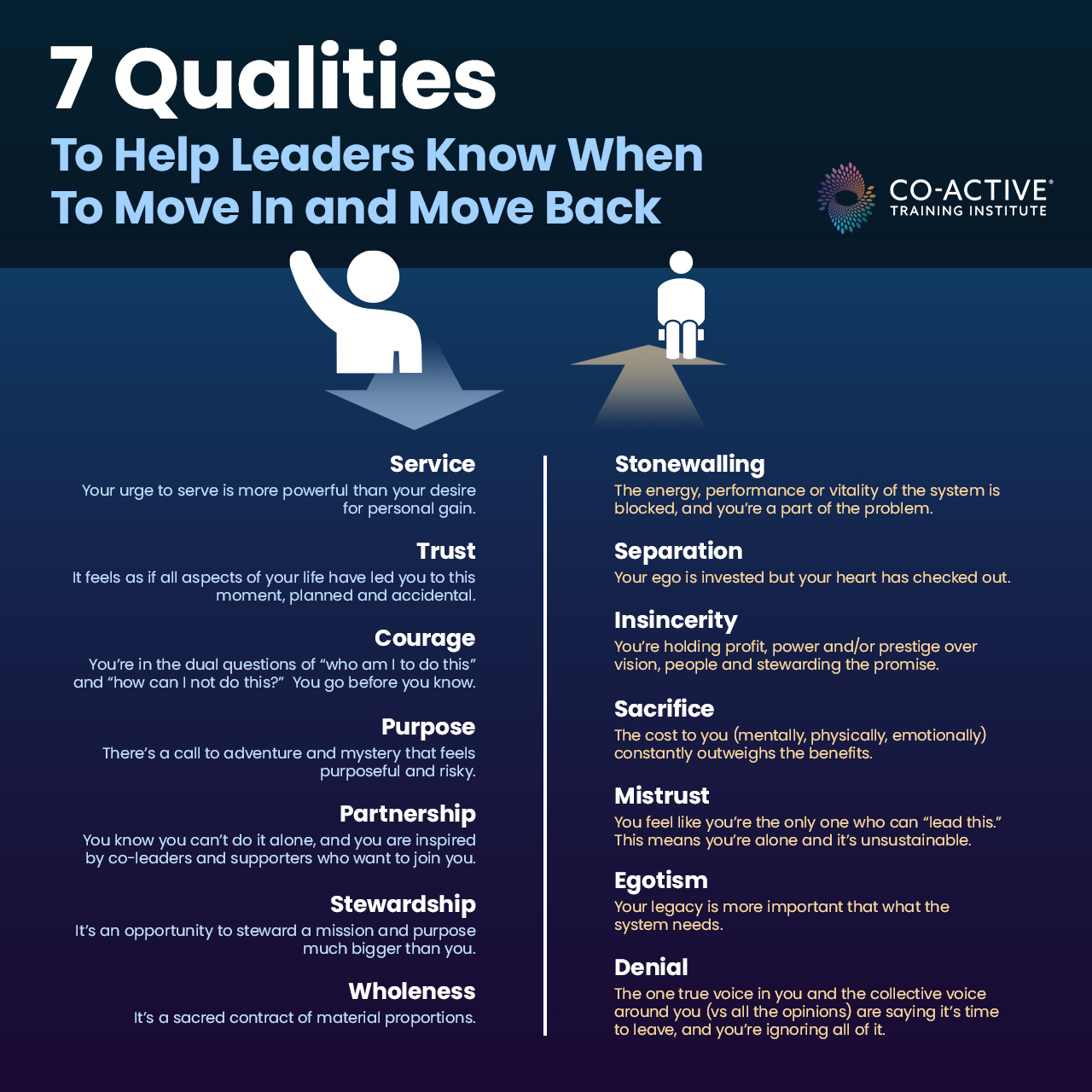How do we know when it’s time to move into a leadership role? The kind of role that holds vision, direction, and connection with people as an event, project, team, or organization moves forward. Equally as important, how do we know when it’s time to relinquish that leadership role, or move back? These moves are energetic, not literal. We rise to take the role, and we fall back when it’s no longer our turn to play that part.
Leadership development work, especially organizational leadership development, tends to invest heavily in preparing leaders to be ready to move in to bigger roles or opportunities. But it does a poor job of helping people know when it’s time to move back and make space for new leadership.
Outside of organizations, this dynamic can persist. The same family member plans the same holiday or festival gathering even though most of the family wish it would evolve. Or the same generous volunteer stays in a role because no one else will do the work, even though they’ve lost heart and motivation.
Having both moved in to the Co-President/Co-CEO role at CTI and moved back when it was time, I now know the importance of these transitions — and a few things to pay attention to. There are lots of examples of people moving into big roles in businesses, in community organizations, and for cultural leadership opportunities. But there are few good examples of leaders choosing to move back when it’s time. Jacinda Ardern, New Zealand’s 40th prime minister is one great example. As she announced her resignation, she shared that she hoped her legacy was one that showed that as a leader, you “can be kind but strong” and “your own kind of leader — one that knows when it’s time to go.”
To know when it’s time to go insists leaders pay attention to instinct, intellect, and energy. What’s your gut and heart saying is needed? What’s the right decision, for you and the people you’re leading, based on the data? What is the quality of energy in the system, and in you?
From my own experience, and exploring what Jacinda Ardern considered, here are 7 qualities that, when present, help you know when it’s time to move in, plus another 7 to help you know when it’s time to move back:

Look around your world — in political systems, corporations, cultural organizations, communities, probably even your own family — and you’ll see tired, dated, ineffective, and even harmful leaders putting themselves ahead of what’s needed. These leaders are not acting with integrity, asking for help, or attuned to what must happened for the well-being of all. In short, it’s time to move back, which is an underdeveloped and underrecognized act of leadership that needs to be trained, practiced, and celebrated.
At CTI, we teach leaders how to attune to the qualities supporting the moves of in and back. The knowing lives in us (self-awareness), in the behavior and engagement of others, and in the energetic field of the system we’re leading. It requires courage, reflection, honesty, and integrity to make the assessment and claim the direction that is needed when the time comes. It’s time we develop these capacities of leadership if we want real change to occur and our world to thrive in this century.
CTI trains leaders in a different way. In our Co-Active Leadership Program, leaders learnthey are capable of creative, purposeful responses to the biggest challenges and mysteries of their lives. Learn more about this advanced leader development program and how it can uproot the established patterns and preconceptions that limit your leadership.We also invite you to join one of our Grow Capacity webinars, where you can learn more about Co-Active leadership in action.

